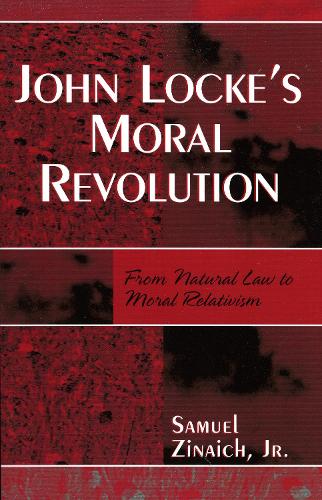
John Locke's Moral Revolution: From Natural Law to Moral Relativism
(Paperback)
Publishing Details
John Locke's Moral Revolution: From Natural Law to Moral Relativism
By (Author) Samuel Zinaich
University Press of America
University Press of America
28th November 2005
United States
Classifications
Tertiary Education
Non Fiction
Philosophical traditions and schools of thought
170
Physical Properties
Paperback
232
Width 179mm, Height 216mm, Spine 19mm
299g
Description
Contrary to the long-cherished opinion of John Locke's infatuation with natural law, there is abundant proof that the amount of intellectual energy Locke devoted to his philosophical views was nowhere as narrow as the attempt to justify a natural law outlook. John Locke's Moral Revolution critiques two traditional approaches to John Locke's philosophy. The first approach interprets John Locke as committed to justifying his early his early Christian / Aristotelian views of the law of nature. The second approach sees Locke attempting to manage a cluster of inconsistent moral views. In this new work, author Samuel Zinaich, Jr. argues that Locke attempts to establish a solid underpinning for religious, moral, and political ideas upon the philosophy of corpuscularism.
Author Bio
Samuel Zinaich, Jr. is an Associate Professor of Philosophy at Purdue University Calumet. He received his Ph.D. and M.A. in Philosophy from Bowling Green State University, Bowling Green, Ohio. He is the co-editor of Ethics for the Professions. He is active in scholarly philosophical societies and is a member of the Editorial board for The International Journal of Philosophical Practice.
